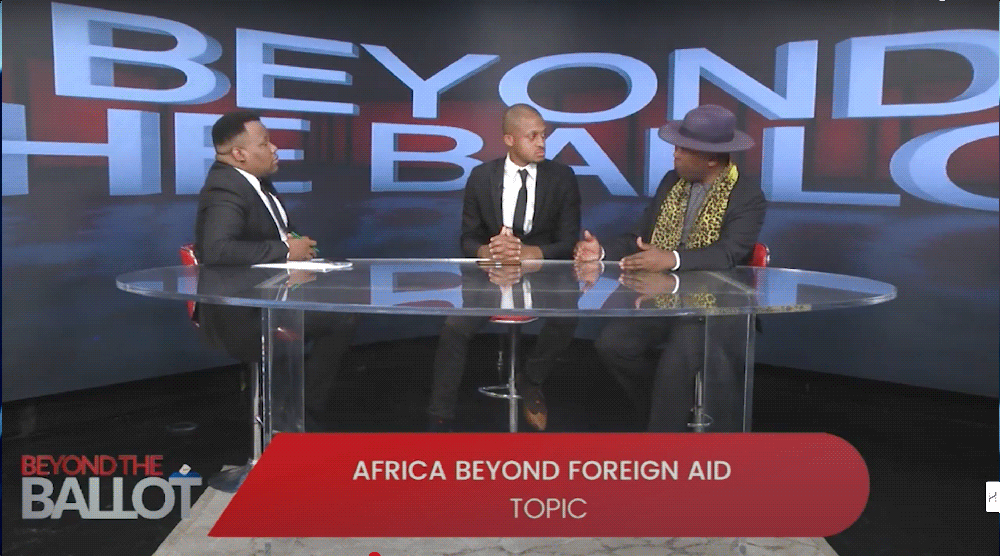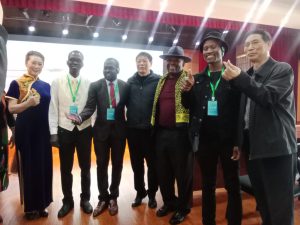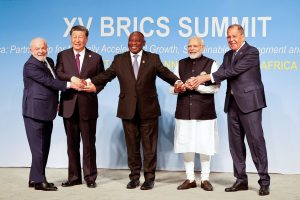This video segment provides a critical analysis of Africa’s development challenges, arguing for a move away from foreign aid and towards self-reliance.
Key Arguments:
- Critique of Foreign Aid: The video argues that foreign aid has been a tool of imperial control, perpetuating dependency and enriching elites rather than benefiting the poor. It highlights the failure of many aid projects and the persistence of poverty despite massive aid inflows.
- Historical Context: The discussion touches on the legacy of colonialism and how post-colonial interventions by rich nations have hindered the development of poorer countries.
- Economic Exploitation: The video asserts that wealthy nations extract wealth from the Global South through unfair trade and financial practices, resulting in a net transfer of resources from poor to rich countries. It criticizes the imbalance of power in global institutions like the IMF and World Bank.
- Need for Structural Change: To achieve economic independence, Africa must build industrial capacity, develop infrastructure, and move away from structural adjustment programs imposed by Bretton Woods institutions.
- Call for Self-Reliance: The video emphasizes the importance of local entrepreneurship, microfinance, and regional integration (like the AfCFTA) as pathways to sustainable development.
- Youth Empowerment: The youth are urged to think critically, unite, and actively participate in political and economic decision-making to drive revolutionary change.
Themes:
- Dependency vs. Independence: The central theme is Africa’s struggle for economic independence and the need to break free from cycles of dependency.
- Exploitation and Inequality: The video highlights the historical and ongoing exploitation of Africa by wealthy nations, leading to global inequality.
- Governance and Leadership: The role of African leadership is scrutinized, with some leaders criticized for complicity in systems that perpetuate poverty.
- The Power of Unity: The video stresses the importance of African unity and cooperation to overcome external challenges.
- The Role of the Youth: The youth are seen as crucial agents of change, capable of driving a new vision for Africa’s future.
Key Themes & Arguments
- The Cycle of Dependency on Foreign Aid
- Foreign aid has historically kept Africa in a state of dependency rather than fostering self-reliance.
- Experts argue that aid has been a tool of imperial control, reinforcing economic and political subjugation.
- The U.S. dollar’s dominance as the global reserve currency exacerbates this dependency, making African economies vulnerable.
- Critique of Foreign Aid’s Impact
- Aid benefits elites, not the poor: It strengthens patronage systems, empowering a small middle class while failing to address structural poverty.
- Corruption & governance failures: Foreign aid often props up authoritarian regimes, discouraging accountability and local entrepreneurship.
- Historical evidence of failure: Over $1.4 trillion in aid has not reduced poverty in Africa, with many projects (especially in agriculture) collapsing.
- The Case for Reparations Over Aid
- Some argue that Africa should demand reparations for colonialism and exploitation rather than accept aid.
- Rejecting aid is seen as a step toward true sovereignty and breaking free from neo-colonial structures.
- Global Power Structures & Inequality
- IMF & World Bank imbalance: The Global South (85% of the world’s population) holds less than 50% of voting power, while the U.S. controls 16%.
- “Global apartheid”: Rich nations prevent poorer countries from using tariffs and subsidies—policies that once helped developed nations industrialize.
- Reverse wealth flow: Poor nations lose more money through exploitative trade, debt, and financial systems than they receive in aid.
- Proxy Wars & Resource Exploitation
- Western powers (U.S., UK, France) maintain influence in Africa through proxy wars (e.g., Sudan, DRC) to secure resources like cobalt and gold.
- Rebel groups (e.g., M23 in Congo) are often backed by foreign intelligence agencies to destabilize regions and control mining.
- Solutions for Africa’s Economic Independence
- Industrialization & infrastructure: Africa must move beyond raw material exports and build manufacturing capacity.
- Microfinance & local business: Models like Grameen Bank show how empowering individuals can reduce aid dependency.
- Youth involvement: Young Africans must push for structural reforms, land redistribution, and political participation beyond elections.
- Call for Revolutionary Change
- Elections alone won’t bring transformation—youth must adopt a revolutionary mindset to dismantle neo-colonial systems.
- Unity among African nations is crucial to resist foreign interference and demand fair global governance.
Conclusion
The discussion highlights that foreign aid has failed Africa, perpetuating dependency, corruption, and exploitation. True progress requires:
- Rejecting aid in favor of reparations & fair trade
- Building industrial and infrastructural capacity
- Challenging global power imbalances
- Empowering youth and grassroots movements
The path forward is self-reliance, not charity—Africa must seize control of its resources, governance, and economic future.
Discover more from Dr Malusi Mncube
Subscribe to get the latest posts sent to your email.




